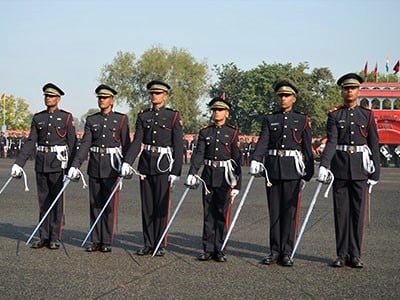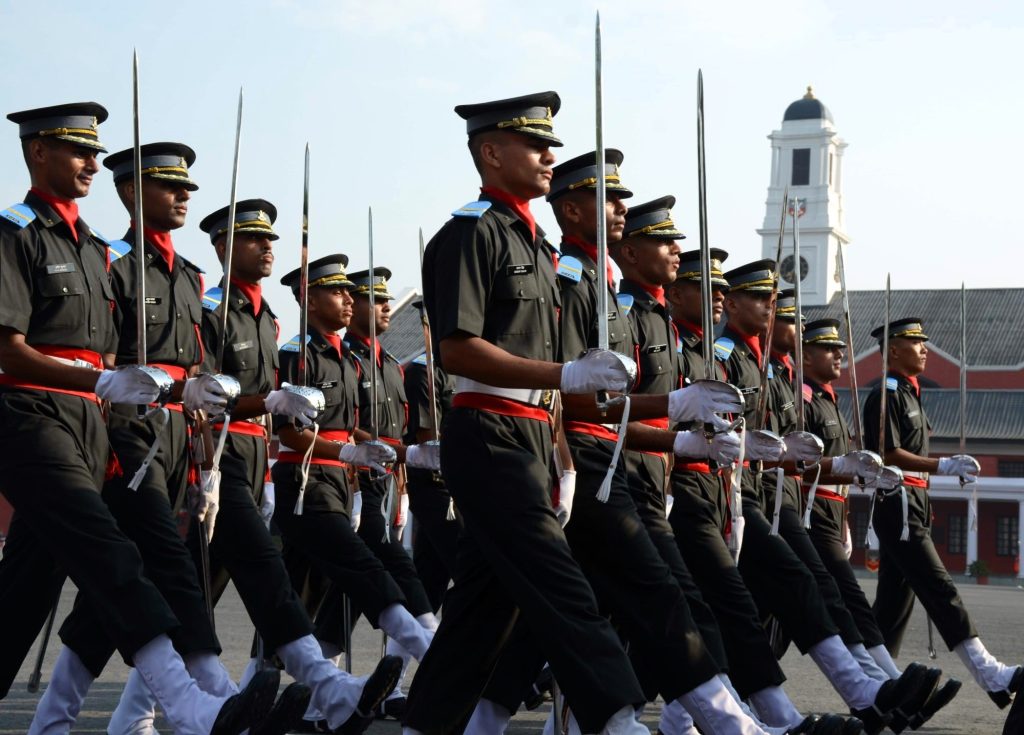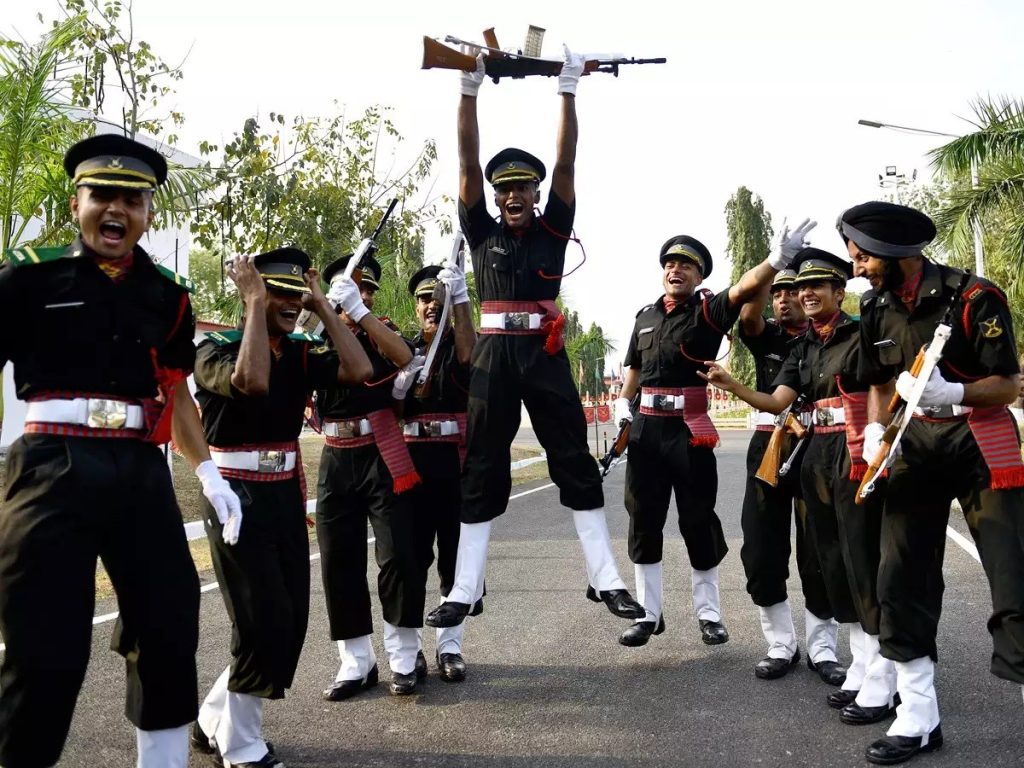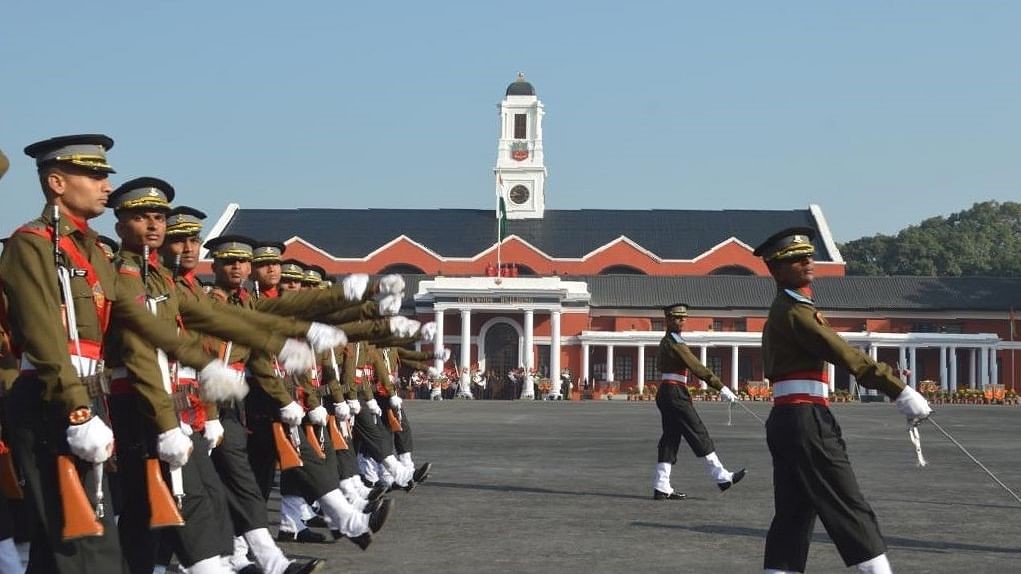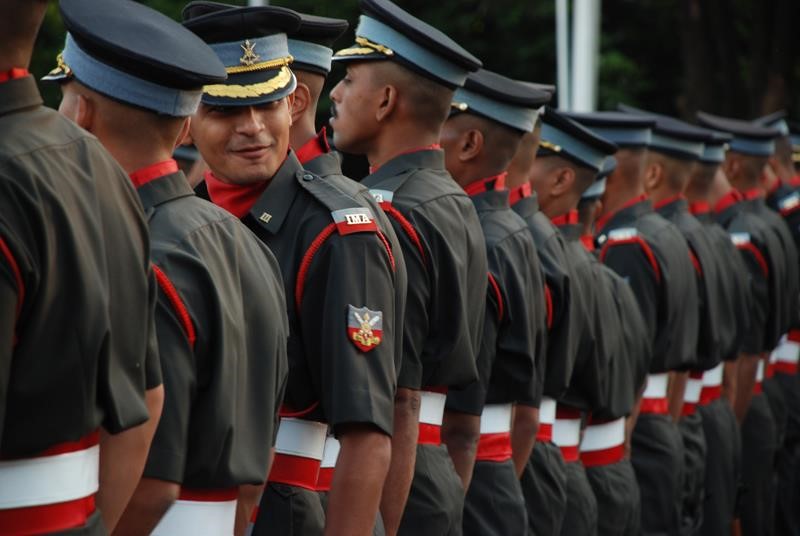Securing success in the Combined Defence Services (CDS) exam marks the commencement of an extraordinary journey into a career within the Indian armed forces. After making it through the CDS Merit List and receiving a joining letter for the academy, individuals step into an adventurous phase defined by training, solidarity, and a profound sense of duty towards the nation. This article will take you through the life after the CDS exam, consisting of various experiences that follow, including induction, training, job profiles, career progression, and post-retirement opportunities.
Induction and Training
After successfully passing the CDS exam, candidates embark on an intensive training journey at renowned academies such as the Indian Military Academy (IMA), Indian Naval Academy (INA), Air Force Academy (AFA), or Officers Training Academy (OTA). This phase focuses on developing not only physical fitness but also discipline, leadership, and a profound commitment to duty. Trainees undergo rigorous training programs aimed at honing their skills and preparing them for the challenges they will face in their roles within the armed forces.
Life within Academies
Life at these military academies is characterized by a blend of physical, mental, and character-building activities. Trainees not only develop core values such as honor, courage, and integrity but also form enduring bonds with their coursemates, creating a supportive community that lasts a lifetime. The camaraderie and esprit de corps fostered within the academies play a crucial role in shaping the character and resilience of future military leaders.
Branch Allocation and Specialization
Upon completion of training, officers are designated to specific branches within the armed forces based on their preferences, aptitude, and the requirements of the service. This phase allows individuals to discover their niche within the Army, Navy, Air Force, or specialized branches, where they can make distinctive contributions to the Indian Armed Forces. Officers undergo further specialized training to develop expertise in their chosen fields and prepare for the responsibilities that lie ahead.
Operational Roles and Responsibilities
Commissioned officers assume various operational roles, including leading troops, serving on warships, flying combat missions, or overseeing strategic planning. The diverse range of roles ensures that each officer plays a unique part in safeguarding the nation’s security and interests, fostering a profound sense of purpose and commitment to duty. Officers are entrusted with leadership responsibilities from the outset, and their decisions can have far-reaching implications for national security.
Continuous Learning and Professional Advancement
Life in the armed forces is characterized by a commitment to continuous learning and professional development. Officers have access to a wide range of advanced courses, seminars, and workshops aimed at enhancing their skills and knowledge. They also participate in joint exercises with foreign militaries, contributing to international cooperation and interoperability. The armed forces emphasize the importance of intellectual growth and adaptability in preparing officers to face evolving challenges in a dynamic security environment.
Career Progression
The armed forces provide a structured career progression pathway, with ample opportunities for promotions and leadership roles. Officers advance through the ranks based on their merit, dedication, and expertise, with leadership skills honed during training proving essential in handling greater responsibilities. The promotion criteria are based on a combination of factors, including years of service, performance evaluations, and professional qualifications. Officers can rise to the highest ranks of General or Admiral, where they play a pivotal role in shaping the strategic direction of the armed forces.
Harmonizing Personal and Professional Life
Maintaining a balance between personal and professional life is one of the key challenges faced by military officers. Frequent relocations, deployments, and extended periods away from family can strain personal relationships and test resilience. However, the armed forces provide a supportive community and a strong sense of camaraderie, helping officers overcome these challenges and develop a sense of belonging. Officers learn to adapt to changing environments and prioritize their responsibilities while cherishing moments with their loved ones.
Post-Retirement Opportunities
After a rewarding career in the armed forces, retired officers possess a wealth of experiences, skills, and leadership acumen. Many choose to contribute further to society in various capacities, including academia, the corporate sector, public service, or social work. The disciplined mindset, strategic thinking, and problem-solving abilities acquired during their military service position retirees as valuable assets across a wide range of fields. Retired officers continue to serve the nation in diverse ways, leaving a lasting legacy of service and sacrifice.
CDS Job Profile & Career Growth
The Union Public Service Commission (UPSC) offers some of the most prestigious job profiles for candidates who join the defence services through the CDS exam. Below is an overview of the job profiles and career progression for UPSC CDS officers:
| S.No. | Job Profile | Job After Promotion | Criteria for Promotion |
|---|---|---|---|
| 1 | Lieutenant | Captain | After 2 years of service |
| 2 | Captain | Major | After 6 years of service |
| 3 | Major | Lieutenant Colonel | After 13 years of service |
| 4 | Lieutenant Colonel | Colonel | After 15 years of service |
| 5 | Colonel | Colonel (TS) | After 16 years of service |
| 6 | Colonel (TS) | Brigadier | After 23 years of service |
| 7 | Brigadier | Major General | After 25 years of service |
| 8 | Major General | Lieutenant General | After 28 years of service |
| 9 | Lieutenant General | General | No Restrictions |
Life after success in the CDS exam begins an adventurous journey filled with challenges, personal growth, and a profound sense of purpose. From demanding training to dynamic roles within the armed forces, individuals embark on a courageous path that leaves the ordinary behind. The CDS exam not only opens the door to a prestigious profession but also serves as a transformative force, shaping individuals into leaders dedicated to serving their nation.
FAQs
Q1: What happens after successfully passing the CDS exam?
After passing the CDS exam, candidates who make it through the merit list receive a joining letter for training at prestigious academies such as the Indian Military Academy (IMA), Indian Naval Academy (INA), Air Force Academy (AFA), or Officers Training Academy (OTA).
Q2: What is the training like after joining the academy post-CDS exam?
Training after joining the academy post-CDS exam is intensive and focuses on physical fitness, discipline, leadership, and a commitment to duty. Trainees undergo rigorous programs aimed at honing their skills and preparing them for roles within the armed forces.
Q3: What are the job profiles available after completing training post-CDS exam?
After completing training post-CDS exam, officers are commissioned into various branches of the armed forces based on their preferences, aptitude, and the requirements of the service. These branches include the Army, Navy, Air Force, or specialized branches such as engineering, medical, or legal.
Q4: How is career progression structured for officers post-CDS exam?
Career progression for officers post-CDS exam is structured and based on merit, dedication, and expertise. Officers advance through the ranks based on performance evaluations, professional qualifications, and years of service. Promotions are granted at predetermined intervals, with opportunities for leadership roles at higher ranks.
Q5: What are the challenges of maintaining a balance between personal and professional life post-CDS exam?
Maintaining a balance between personal and professional life post-CDS exam can be challenging due to frequent relocations, deployments, and extended periods away from family. However, the armed forces provide a supportive community and resources to help officers overcome these challenges.
Q6: What opportunities are available for retired officers post-CDS exam?
Retired officers post-CDS exam have a wealth of experiences and skills that make them valuable assets across various fields. Many choose to contribute further to society through academia, the corporate sector, public service, or social work, leveraging their disciplined mindset and leadership acumen.
Q7: What are the criteria for promotions post-CDS exam?
Criteria for promotions post-CDS exam are based on a combination of factors, including performance evaluations, professional qualifications, and years of service. Officers must demonstrate merit, dedication, and expertise to advance through the ranks.
Q8: Can officers switch branches or specialties post-CDS exam?
Officers may have opportunities to switch branches or specialties post-CDS exam based on their qualifications, aptitude, and the needs of the service. However, such transitions may require additional training or qualifications to ensure readiness for new roles.
Q9: How does life after the CDS exam contribute to personal growth and development?
Life after the CDS exam is a transformative experience that fosters personal growth and development. Officers undergo rigorous training, face diverse challenges, and develop leadership skills that shape them into resilient and capable leaders dedicated to serving their nation.
Q10: What is the role of officers in safeguarding national security post-CDS exam?
Officers post-CDS exam play a crucial role in safeguarding national security by assuming various operational roles, including leading troops, serving on warships, flying combat missions, or overseeing strategic planning. Their contributions ensure the safety and sovereignty of the nation.
